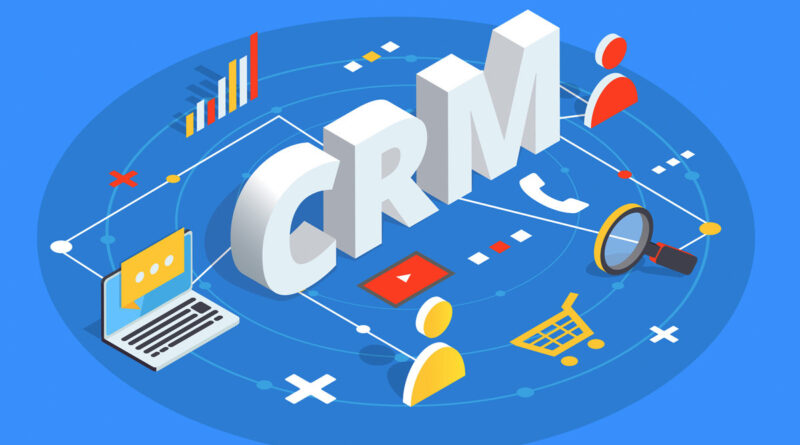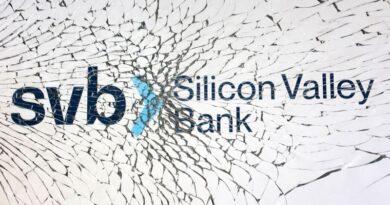How to choose best CRM for your Business
Software solution selection requires some patience and dedication. It is not as simple as picking a commodity on the shelf of a convenience store. It’s the same when selecting the CRM solution for your business. It’s not like you buy one and if it doesn’t suit your requirement then return it for a refund or replacement. It will help if you put in some extra time. Hurrying in, you may commit any of the common mistakes when choosing CRM software. You’re aiming for the best and right CRM for your business. You can buy the best-in-class CRM tool; however, if it doesn’t fit into your business, then your investment ends up waste.
CRM is a must-have system for any B2B business. But, how will a CRM benefit you, and why should you invest in it? How to choose the right CRM vendor, with plenty of vendors available? What makes one vendor stand out from another?
When deciding on a CRM system, companies make the biggest mistake because they more emphasize evaluating vendors and different features rather than concentrating on their business needs and priorities.
Ask yourself these questions before starting the evaluation of CRM vendors:
- Do you need CRM?
- What process do we want to improve with a CRM?
- What workflows do we lack and need to improve or add?
- Who and how many users are going to use CRM?
- What other legacy software do we want to integrate with a CRM?
- What is our budget?
Right from the beginning, having the information and resources you need to make an intelligent assessment is very important. When making the purchase, you’ll be so confident in your choice, backed up by an informed decision. We will help you make this decision with this post.
1. Know what you need
Each organization has specific processes and a client base, and growth dynamics. So it is simply not prudent to commit to a set of ordinary, simple, and uncompromising functions.
A scalable CRM solution what you need! Your CRM needs to grow with your business, so ensure that the CRM solution you are going to choose can be easily upgraded. Very often, CRM comes with many unwanted features for your businesses. Then, why pay for the parts you don’t need? According to a survey, first-time CRM buyers often miscalculate the functionality they need.
Ask yourself if you or every other in your organization needs the entire feature that a CRM can offer? Or how many users need CRM? Different users require different elements like your sales team needs, only management with activity tracking for clients with the full sales cycle. The marketing team needs only campaign management. In contrast, the sales team may need CRM on mobile devices.
One thing is clear-choose the CRM that can fulfill your Requirements! Most important is that you must know what problem you are trying to solve with a CRM.
To decide which CRM tool is most successful for your business, set the following goals:
- Leads and Lead Activity
- Customer Base
- Track Opportunities and Closing Rates
- Connectivity Between Teams
- Manage Relationships
- Generate Customized Reporting/MIS
- Increase Profitability
- Increase Productivity
Your business requirements will define the kind of CRM tool and features you need.
It would be best if you now had your needs to be transparent. These are typically the problems that you face may include the following:
- Difficulty in finding customer data
- Poor communication with the client
- Difficulty in creating or retain loyal customers
- Difficulty in managing activity schedules
- Poor visibility of salesperson’s performance
- Different types of CRM
It might sound so evident, but you must know what you are going to do. To clarify, did you know that 27% of the sellers don’t know what CRM is? And what if you, the owner of the company, did not realize CRM? That makes your business disaster. The advantages and benefits, the methodologies, and best practices of CRM are what you are for and what it can do for your enterprise. Fortunately, CRM is one of the most frequently written business topics with no shortage of knowledge.
The argument is that if you don’t have full awareness and relevant details, you don’t get in business with anyone. The first step in selecting a CRM program is to know what the CRM is first. After you decide your needs, the software component comes later.
There are three functional types of CRM.
Basic operating CRM framework that offers your Sales, marketing, and support services a shared platform and a single collection of customer data. This solves the issue of locating consumer data when all three units use one unified database.
For an operational CRM, you can benefit from three principal capabilities: sales force automation to evaluate the lead to the consumer cycle, marketing automation to streamline marketing processes, and service automation for managing customer service and support. If you’re looking for a comprehensive CRM solution, this can be the perfect CRM.
Another form of analytical CRM is developed with advanced technology such as pattern recognition and data mining to process and analyze customer data. It gives you profound insights into how consumers shop and buy trends, enabling accurate and targeted offers to be made.
The 3rd, collaborative CRM, enables the collaboration and exchange of important client information with internal and external (partners, suppliers) stakeholders (agents, employees, management). All concerned must be interested in creating more successful campaigns and promotions.
You can shop for a CRM solution when you determine what sort of CRM would better suit your needs.
There are two types of CRM software you can buy as per cost.
Both solutions have pros and cons.
- Cloud (Software-as-a-Service/ SaaS) solution – On your hand, you don’t need a server or technological skills. You are quickly signed in and ready to go to the cloud-based CRM in your web browser. All data resides on the provider’s server.
However, this needs a continuous internet connection. If your Internet connection fails, you will not be able to access your data.
2. On-premise solution– The program is owned by you and is physically hosted on your site. Therefore, if you want to connect with other customer applications, you have direct access to servers. Moreover, recurring subscription fees would not have to be dealt with for some reason.
However, this needs to have in-house IT personnel and necessary hardware and supporting software; the upfront cost also incurs higher.
2. Choose the CRM system that is scalable and is able to evolve with your business.
Integration with other applications is one of the main aspects when you select a CRM for your business.
You need to ensure that the CRM system can integrate with other applications you already own.
Your CRM should also seamlessly integrate with: an ERP or other accounting software, HRMS, your website, and web forms to import leads and e-commerce platforms to register transactions, as well as marketing solutions.
Also, ensure that your current contact information can be easily transferred to your new CRM. You can import data from other sources on most CRM systems. Also, check if your CRM software allows you to export information.
Although multiple system compatibility is becoming less of a problem with APIs as more and more applications are connected, you still have to ensure that you can click the CRM system you chose to other applications that you have already implemented. If you want help to connect all your systems via APIs, find a third-party platform to integrate your data management systems
3. Cost
How much does CRM software cost when it comes to prices? It depends on the plan to subscribe and deploy, but cloud CRMs provided as a SaaS are very affordable.
Software costs are of significant importance for SMBs, so many start their business with free CRM software and then migrate to paid solutions as businesses expand. There are many free to use CRM available. You can easily register and start using for the allowed number of users.
However, free CRM needs some technical skills to handle operations. There are free+paid CRM also available in the market that means these are free for initial few users. After that, you need to pay
4.Read up about the vendor.
The CRM vendor is just as important as the CRM itself. You’ll be relying on the vendor for support and assistance till you’re using the software. Thus, the company must be reliable. It must have a support team that can be reached from all available channels and means – email, Phone, live chat, mobile, etc.
The company should also be able to provide technical know-how, product-related training.
Some of the CRM companies are – HubSpot, Salesforce, Freshsales, Pipedrive, NeoCRM, and Zoho. With reliable vendors, you’ll be assured world-class service, timely response or resolution of problems, automated upgrades, and new features rollout.
In addition to the popularity, how do you check a seller’s reputation? You can gather vendor profiles and information on blogs like our directory
5.Product Demo
Be sure you have access to a demo and, most critically, use the demo. Try breaking the demonstration. This is the time to assess the system correctly and see its benefits and limitations for the organization’s needs. Many people are waiting for a product demo to take a quick peek before assuming it works. It would save you time in the long run with a little spare time at this time
6.Reporting Capabilities
While the fundamental aspect of a CRM is fantastic, it will help you conquer the competition by your product’s reporting potential. The opportunity to personalize reports based on your specific details would reveal your winning, failing, and enhancing prospects. You may think your processes are successful, but otherwise, your data may show you. Ensuring that your sales force does not fear accurate customer data is very powerful for your company to evaluate the best goods, facilities, pricing, and distribution criteria
7. User experience
The way you feel and learn when using a CRM device is one of the most critical factors for choosing.
For example, you can ask the vendor to show you how many clicks it takes to do a specific task. As you watch, ask yourself: How effective (and enjoyable) is the user interface? Are the buttons labeled clearly? Is the flow of actions logical?
You may ask the provider, for example, to show you how many clicks a particular job takes. As you watch, wonder: how powerful is the user interface (and how fun it is). How user friendly it is. All this constitutes user experience.
So, when you are watching a demo or testing out a CRM system, make sure to evaluate the system’s user interface, as well as its ease of use.
It is a vital and often lengthy process to pick the right CRM for your business. The above considerations will direct your decision-making when you begin your CRM analysis. You want to choose the best framework for your business model because the right CRM software will lead to your company’s success.
Wanna get famous? Want to share your analysis about a Information Technology, Startup, Digital marketing, Other News? Think you can do a better job at being than us? We invite you to being a part of our community @SoftwareMania



